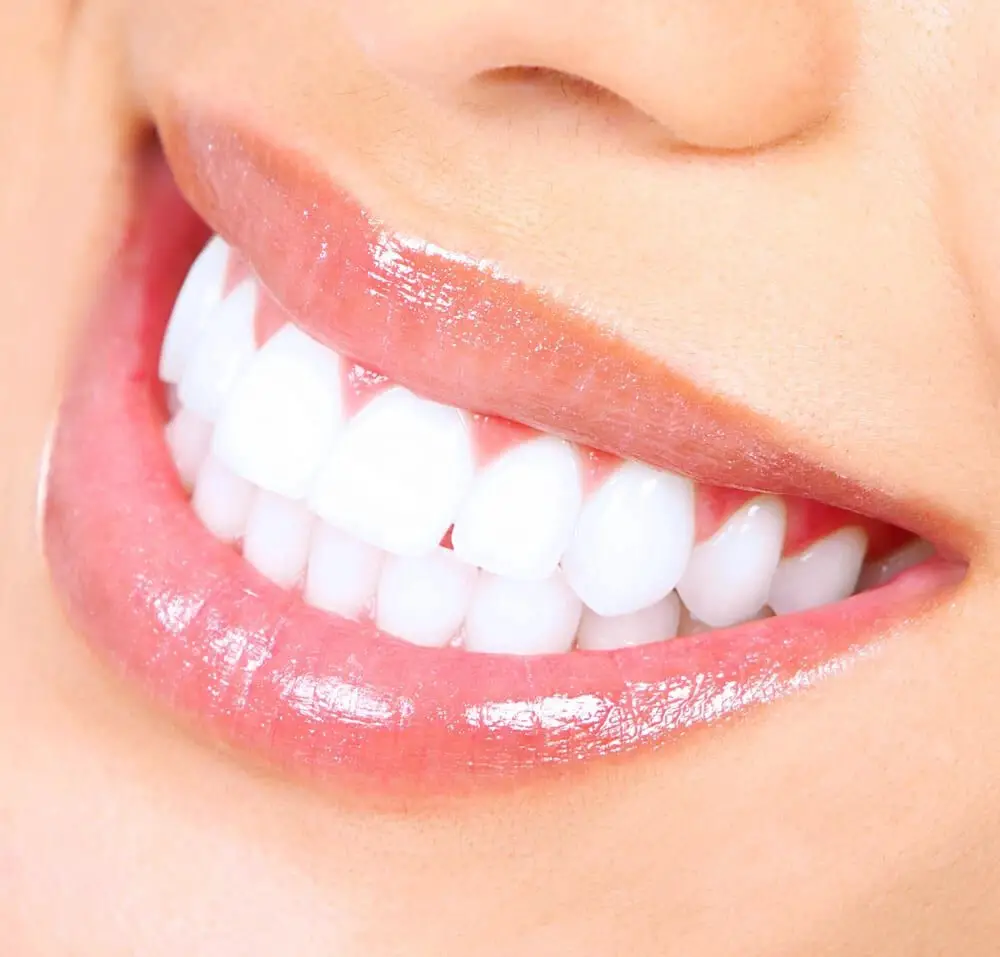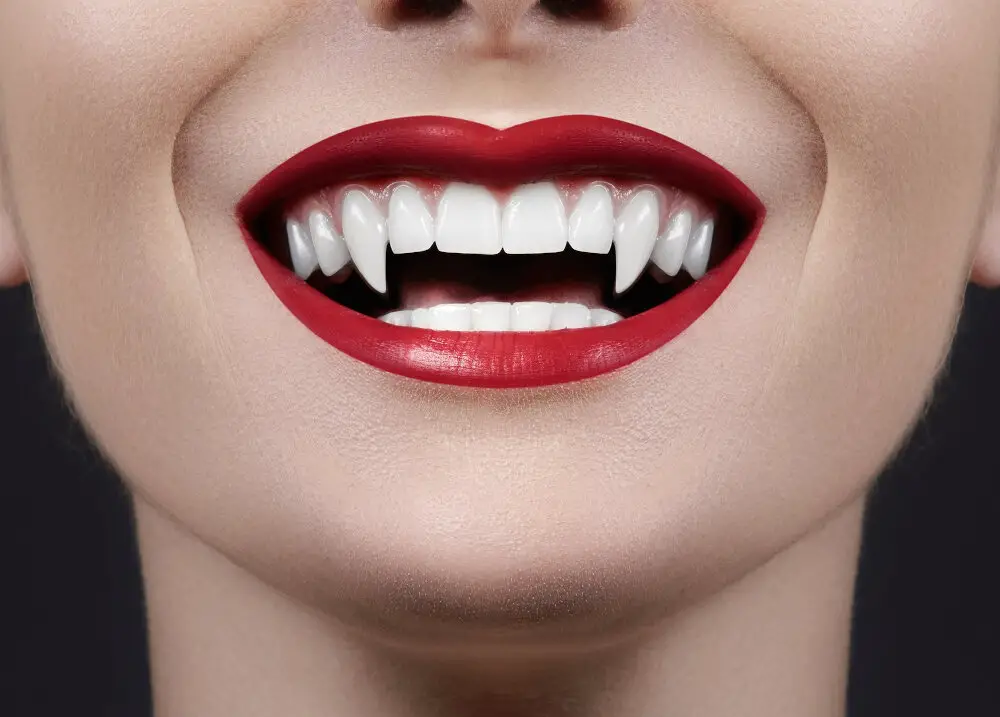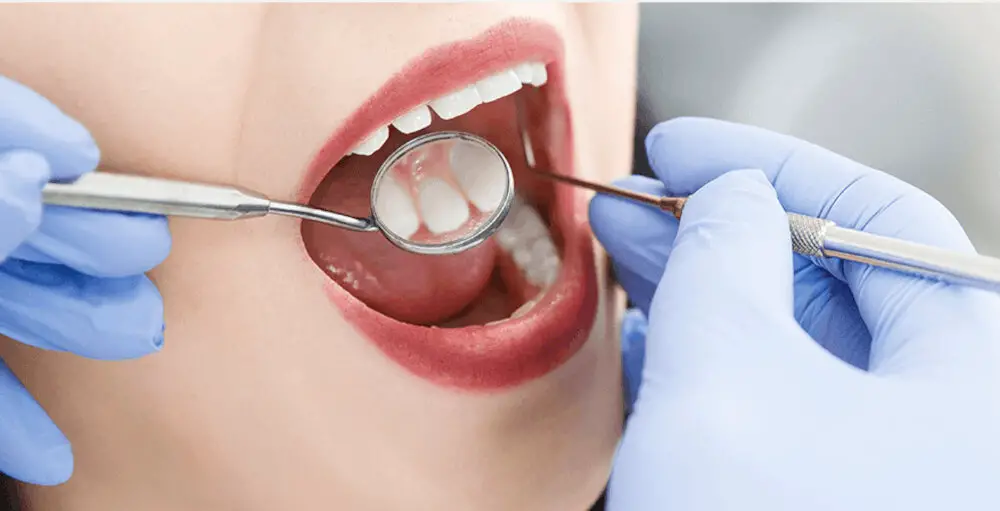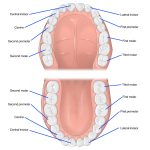Why Dogs Chomp Their Teeth: Understanding the Reasons Behind this Canine Behavior

Dogs are fascinating creatures that have been man’s loyal companions for thousands of years. They have evolved alongside us and adapted to our way of life, becoming a part of our families and even our social circles. However, despite their domestication, dogs still exhibit behaviors that may seem strange and even alarming to some pet owners. One such behavior is chomping or clacking of their teeth, which can often be heard when they are relaxed or excited. Understanding why dogs do this can help pet owners better communicate with their furry friends and provide them with the care they need. There are many reasons why dogs chomp their teeth, and it’s not always easy to determine the underlying cause. Some dogs may do it out of excitement or anxiety, while others may do it to communicate with their owners or other dogs. It’s also possible that your dog may be experiencing pain or discomfort, which could lead to this behavior. In this article, we will explore the reasons behind why dogs chomp their teeth and what pet owners can do to address this behavior. By gaining a better understanding of our furry friend’s behavior, we can strengthen the bond we share with them and ensure their happiness and well-being.
Dog teeth chomping is a common behavior exhibited by many canines, and it can signify a range of emotions and motivations. One reason for this behavior is anxiety, stress, or fear, as dogs may use teeth chomping as a calming mechanism in response to a stressful situation. Additionally, dogs may chomp their teeth as a way to communicate with their owners or other dogs, indicating excitement, anticipation, or even aggression. This behavior can also be a sign of dental issues or discomfort, such as teething or gum disease. Understanding the various reasons behind dog teeth chomping can help owners better interpret their pet’s behavior and provide appropriate care and attention.
Understanding why dogs chomp their teeth is crucial for any responsible pet owner. This behavior can be an indication of several underlying issues, such as anxiety, pain, or aggression. Ignoring this behavior can lead to more severe problems, such as destructive behavior or biting. By understanding the reasons behind this behavior, owners can take appropriate action to address the root cause. It is also essential to recognize that dogs communicate through body language, and teeth chomping is just one of the many ways they convey their emotions. Being mindful of our pet’s behavior can help us build a stronger bond with them and ensure their physical and emotional well-being.
Communication

Communication is a vital aspect of any living being’s life, including canines. Dogs use various methods to communicate their feelings, emotions, and needs to their owners and other dogs. One of the most commonly observed canine behavior is the chomping of teeth. This behavior can be seen in both domesticated and wild dogs and has a range of reasons behind it. In most cases, dogs chomp their teeth when they are excited or anxious. This behavior can be observed when dogs are playing with their owners or other dogs. It can also be seen when they are about to go for a walk or when they are anticipating their favorite treat. In such cases, chomping of teeth is a sign of excitement and eagerness. On the other hand, dogs may also chomp their teeth when they are anxious or nervous. This behavior can be seen when dogs are in an unfamiliar environment or when they are introduced to new people or situations. In such cases, chomping of teeth is a sign of fear or anxiety, and it is important for pet owners to recognize this behavior and take appropriate steps to comfort their furry friends. Overall, communication plays a crucial role in understanding the behavior of dogs, and recognizing the reasons behind their chomping of teeth can help pet owners provide better care and support to their furry friends.
Dogs are known to use various forms of communication to convey their feelings and intentions, and chomping is one of them. When a dog chomps its teeth, it is often a sign of excitement or anticipation. For example, if you are holding a treat and your dog starts chomping its teeth, it is likely indicating that it wants the treat. Additionally, dogs may chomp their teeth as a warning sign to other animals or people. This can be a sign of aggression or discomfort, and it is important to be aware of the context in which the chomping is occurring. Overall, understanding why dogs chomp their teeth can help us better communicate with and understand our furry friends.
Chomping is a common behavior among dogs that can communicate various messages. One example of communication through chomping is when a dog feels threatened or uncomfortable. In this case, the dog may chomp its teeth as a warning sign to others that it is not happy with the situation. Another example is when a dog is excited or overstimulated, it may chomp its teeth as a way to release energy and enthusiasm. Finally, chomping can also be a sign of stress or anxiety, where a dog may chomp its teeth as a way to cope with the situation. Understanding the different reasons why dogs chomp their teeth can help dog owners better communicate with their pets and provide them with the appropriate support and care they need.
Recognizing the signals behind a dog’s chomping of teeth is essential for their well-being and safety. This behavior can indicate different emotions or needs that a dog is experiencing, such as anxiety, aggression, or pain. Therefore, understanding the reasons behind this behavior can help pet owners identify potential issues early on and take appropriate measures to address them. For instance, if a dog is chomping their teeth due to anxiety, the owner can provide them with comfort and reassurance or seek professional help. On the other hand, if the behavior is caused by pain, the dog may need medical attention. By recognizing these signals, pet owners can ensure that their furry friends are healthy, happy, and safe.
Stress and Anxiety

Stress and anxiety are common issues that affect many dogs, and chomping their teeth can be a sign that they are experiencing these emotions. Dogs can become stressed and anxious for a variety of reasons, including changes in their environment, separation anxiety, and fear of loud noises. When a dog chomps its teeth, it is often a sign of nervousness or tension, and it may also indicate that the dog is feeling threatened or uncomfortable. In some cases, dogs may also chomp their teeth as a way to cope with a stressful or unfamiliar situation. It is important for dog owners to recognize the signs of stress and anxiety in their pets, as these emotions can have a negative impact on the dog’s health and well-being. If a dog is chomping its teeth frequently, it may be a sign that it is experiencing ongoing stress or anxiety, and owners should take steps to address the underlying cause of these emotions. This may involve providing the dog with a safe and comfortable environment, avoiding situations that trigger anxiety, and seeking the advice of a veterinarian or animal behaviorist. With the right care and attention, most dogs can overcome stress and anxiety, and chomping their teeth will become a thing of the past.
Dogs use chomping as a coping mechanism when they are feeling anxious or stressed. This behavior is often seen in dogs who are left alone for extended periods or have experienced trauma in the past. Chomping can help dogs release tension and calm down, similar to how humans might clench their fists or take deep breaths to manage their stress. Additionally, chomping can provide a sense of comfort and security for dogs, especially if they have a favorite toy or chew that they enjoy. While chomping may seem like an odd behavior to humans, it is a natural coping mechanism for dogs and can be a sign that they need some extra care and attention.
Stress and anxiety are common problems in dogs, and there are many signs that pet owners can look out for. One of the most obvious signs of stress is chomping or grinding of the teeth, which can be accompanied by other symptoms such as panting, pacing, and whining. Other signs of stress and anxiety include restlessness, trembling, and excessive barking or howling. Dogs may also become more aggressive or withdrawn when they are feeling stressed, and they may lose interest in food or become overly clingy to their owners. It is important for pet owners to recognize these signs and take steps to reduce their dog’s stress levels, such as providing plenty of exercise, socialization, and mental stimulation.
Stress and anxiety can cause a range of behavioral problems in dogs, including teeth chomping. To alleviate stress and anxiety, owners can provide their dogs with plenty of exercise, mental stimulation, and socialization. Regular walks, playtime, and training sessions can help dogs burn off excess energy and reduce anxiety. Additionally, providing a safe and comfortable environment with a cozy bed, toys, and treats can help dogs feel secure and relaxed. Owners can also consider using natural remedies such as calming pheromones, herbal supplements, or aromatherapy to help their dogs relax. Lastly, seeking professional help from a veterinarian or animal behaviorist may be necessary for severe cases of stress and anxiety.
Dental Health

Dental health is an essential aspect of a dog’s overall well-being. Just like humans, dogs need proper dental care to maintain healthy teeth and gums. Poor dental health can lead to a range of health problems, including bad breath, tooth decay, and even heart disease. It is, therefore, important for dog owners to pay attention to their pet’s dental hygiene and take appropriate measures to ensure that their teeth and gums remain healthy. One of the best ways to promote dental health in dogs is through regular brushing. Dog owners should use a toothbrush and toothpaste specially designed for dogs to brush their pet’s teeth. Additionally, providing dental chews and toys can also help to clean a dog’s teeth and promote healthy gums. Regular veterinary check-ups are also essential for monitoring a dog’s dental health and addressing any issues that may arise. By prioritizing dental care, dog owners can help to keep their pets healthy and happy for years to come.
Good dental hygiene is essential for dogs to maintain their overall health and well-being. Proper dental care not only prevents bad breath but also helps prevent serious health issues such as gum disease and tooth decay. Dogs that don’t receive proper dental care are at risk of developing various dental problems, which can lead to bacterial infections and inflammation of the gums. Neglecting dental hygiene can also lead to tooth loss, which can affect the dog’s ability to eat properly. Regular dental check-ups, teeth cleaning, and providing chew toys can help promote good dental hygiene and prevent dental problems in our furry friends.
Chomping can be a sign of dental problems in dogs. When a dog chomps their teeth, it is often a reaction to pain or discomfort. Dental problems such as gum disease, tooth decay, or abscesses can cause a dog’s teeth to ache, leading to chomping behavior. Additionally, chomping can be a sign of a misaligned bite, which can cause wear and tear on teeth and lead to further dental issues. If your dog is exhibiting chomping behavior, it is important to get their teeth checked by a veterinarian to identify and address any underlying dental problems. Regular dental care, including brushing and professional cleanings, can also help prevent dental issues that may lead to chomping behavior.
Maintaining healthy teeth is crucial for a dog’s overall health. To prevent dental problems and chomping behavior, it is important to take preventive measures. Firstly, provide your dog with a balanced and nutritious diet, which includes dry dog food that can help clean their teeth while they chew. Brushing your dog’s teeth regularly with a dog-friendly toothpaste is also a must. You can also provide chew toys that are specifically designed to help remove plaque and tartar buildup in their teeth. Regular visits to the veterinarian for dental check-ups and cleanings are also recommended to keep your dog’s teeth healthy and prevent any potential dental problems. By taking these preventive measures, you can ensure that your dog has a healthy set of teeth and a happy and comfortable life.
Boredom and Excess Energy

Boredom and excess energy are two of the most common reasons why dogs chomp their teeth. Dogs are naturally active creatures, and when they don’t get enough exercise or stimulation, they can become bored. When a dog is bored, they may start to chew on things around the house, including their own teeth. This behavior is often a sign that the dog needs more exercise and mental stimulation. Dogs that are left alone for long periods of time or kept inside without access to the outdoors are especially prone to boredom and excess energy. Providing your dog with plenty of exercise and mental stimulation can help prevent this behavior. Excess energy can also lead to teeth chomping in dogs. Dogs that are young or particularly high-energy may need more exercise than others. When a dog has excess energy, they may try to burn it off by chomping on their teeth or chewing on things around the house. Providing your dog with plenty of exercise, including walks, runs, and playtime, can help prevent this behavior. If your dog is still chewing on their teeth despite getting enough exercise, it may be a sign of an underlying health issue. In this case, it’s important to consult with your veterinarian to rule out any medical conditions.
Chomping, also known as teeth chattering or teeth grinding, is a common behavior observed in dogs that can be a sign of boredom or excess energy. Dogs may resort to chomping when they are confined to a small space or when they lack stimulation and physical activity. This behavior can also be a way for dogs to release pent-up energy and frustration. Additionally, some dogs may chomp when they are anxious or stressed, so it is important to observe the context in which the behavior occurs. Providing dogs with plenty of exercise, mental stimulation, and socialization can help reduce chomping behavior and keep them happy and healthy.
Keeping dogs mentally and physically stimulated is crucial for their overall well-being and behavior. There are various ways to do so, such as taking them for daily walks, playing fetch, and providing them with interactive toys. Puzzle toys and treat-dispensing toys can also be beneficial in keeping dogs mentally engaged and preventing boredom. Additionally, incorporating obedience training, agility courses, and scent work can provide dogs with mental stimulation and challenge their problem-solving skills. It is essential to provide dogs with a variety of activities to prevent them from becoming bored and engaging in destructive behavior such as chomping their teeth.
Excessive chomping in dogs is a common behavior that can be frustrating for pet owners. However, there are effective training techniques that can help address this issue. One approach is to provide the dog with appropriate chew toys and bones to redirect their chewing behavior. Another technique is to reward the dog when they are calm and not chomping, using positive reinforcement to encourage good behavior. Consistency is key in training, and it is important to provide clear and consistent cues to the dog to help them understand what behavior is expected of them. Additionally, addressing any underlying anxiety or stress that may be causing the chomping behavior can also be helpful in reducing excessive chewing. With patience and persistence, these training techniques can help teach dogs to control their chomping behavior and be well-behaved pets.
Dogs chomp their teeth for various reasons, and understanding these behaviors can help us better communicate with our furry friends. One reason dogs chomp their teeth is related to their predatory instincts. Dogs are natural hunters, and chomping can simulate the act of biting and tearing flesh. This behavior can also be a sign of stress or anxiety, as dogs may resort to chomping as a way to cope with their emotions. Additionally, dental problems or pain can lead to chomping behavior as dogs try to alleviate discomfort. By observing their body language and the context of their chomping, we can better interpret our dogs’ actions and provide appropriate care and attention.
Understanding why dogs chomp their teeth is crucial for any dog owner. This behavior can indicate a variety of things, from playfulness to anxiety or even aggression. Paying attention to this behavior can help owners identify potential issues and address them before they become serious problems. Additionally, understanding the reasons behind this behavior can help owners build stronger bonds with their furry friends by recognizing when they are happy, comfortable, or stressed. Overall, being aware of why dogs chomp their teeth can lead to better communication, happier dogs, and a more fulfilling relationship between owners and their beloved pets.
Chomping behavior in dogs can be a sign of stress, anxiety, or boredom. To promote their overall wellbeing, it’s important to address the root cause of their chomping behavior. One way to do this is to provide them with plenty of mental and physical stimulation through activities such as interactive toys, puzzle feeders, and regular exercise. Additionally, creating a calm and predictable routine can help reduce stress and anxiety. It’s also important to ensure that your dog has access to safe and appropriate chew toys to satisfy their natural urge to chew. Professional training and behavior modification techniques may also be necessary in some cases. By addressing chomping behavior in dogs, we can help promote their physical and emotional health and strengthen our bond with them.
Conclusion

In conclusion, understanding why dogs chomp their teeth is crucial for every dog owner. It can be caused by various reasons, including anxiety, excitement, aggression, or dental issues. Being aware of the triggers, such as unfamiliar situations or loud noises, can help prevent this behavior. Providing your dog with enough exercise, mental stimulation, and proper dental care can also minimize the chances of teeth chomping. Remember, a healthy and happy dog can lead to a healthy and happy life together.







